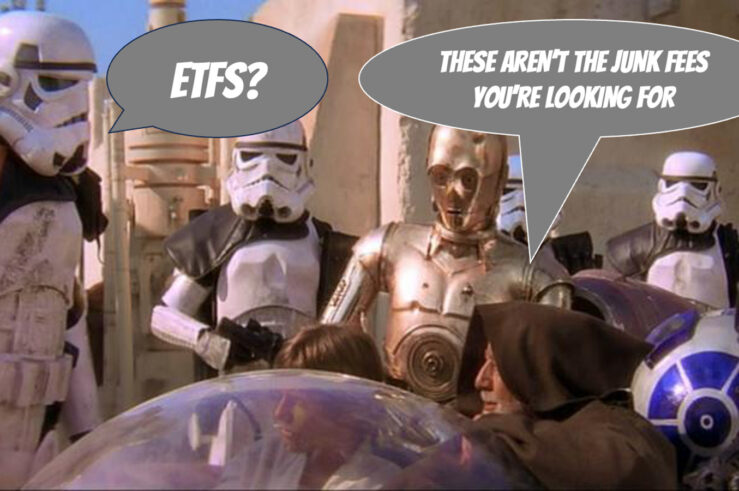Showing results for: “loyalty discounts”
Capital Confusion at the New York Times
In a recent guest essay for The New York Times, Aaron Klein of the Brookings Institution claims that the merger between Capital One and Discover would “keep intact the broken and predatory system in which credit card companies profit handsomely by rewarding our richest Americans and advantaging the biggest corporations.” That’s quite an indictment! Fortunately, Klein also ... Capital Confusion at the New York Times
Mi Mercado Es Su Mercado: The Flawed Competition Analysis of Mexico’s COFECE
Mexico’s Federal Economic Competition Commission (COFECE, after its Spanish acronym) has published the preliminary report it prepared following its investigation of competition in the retail electronic-commerce market (e.g., Amazon). The report finds that: there are elements to preliminarily determine that there are no conditions of effective competition in the Relevant Market of Sellers and in ... Mi Mercado Es Su Mercado: The Flawed Competition Analysis of Mexico’s COFECE
FCC’s Digital-Discrimination Rules: An Open Invitation to Flood the Field with Schlock
A half-dozen lawsuits have been filed to date challenging the digital-discrimination rules recently approved by the Federal Communications Commission (FCC). These cases were consolidated earlier this month and will now be heard by the 8th U.S. Circuit Court of Appeals. This has the hallmarks of a significant case that will almost certainly involve the U.S. ... FCC’s Digital-Discrimination Rules: An Open Invitation to Flood the Field with Schlock
Are Early-Termination Fees ‘Junk’ Fees?
Cable and satellite companies often get a bad rap for early termination fees (ETFs). Consumer advocates portray them as “junk fees” or billing traps meant to cheat customers. And the Federal Communications Commission (FCC) appears to accept these allegations at face value, characterizing ETFs as “junk fee billing practices … that penalize subscribers for terminating ... Are Early-Termination Fees ‘Junk’ Fees?
Slouching Toward Disconnection and the End of the ACP
It’s our first post of the New Year, and we’re having a hard time feeling the Hootenanny vibes. Rather than Congress taking a “new year, new you” approach to telecom policy, it seems that D.C. is starting the year with the “same old, same old” of brinkmanship. This time, with broadband subsidies. The Affordable Connectivity ... Slouching Toward Disconnection and the End of the ACP
The View from Turkey: A TOTM Q&A with Kerem Cem Sanli
How did you come to be interested in the regulation of digital markets? I am a full-time professor in competition law at Bilgi University in Istanbul. I first became interested in the application of competition law in digital markets when a PhD student of mine, Cihan Dogan, wrote his PhD thesis on the topic in ... The View from Turkey: A TOTM Q&A with Kerem Cem Sanli
A Holiday Hootenanny Hiatus, But First, Some Title II Talk
For those of who’ve been doing the Telecom Two-Step over the past year, the holiday break can’t come soon enough. Last week, comments were due on the Federal Communications Commission’s (FCC) latest proposal to impose Title II common-carrier regulation under the guise of net neutrality national security. Before that, we had the FCC’s new and ... A Holiday Hootenanny Hiatus, But First, Some Title II Talk
Everyone Discriminates Under the FCC’s Proposed New Rules
The Federal Communications Commission’s (FCC) proposed digital-discrimination rules hit the streets earlier this month and, as we say at Hootenanny Central, they’re a real humdinger. It looks like the National Telecommunications and Information Agency (NTIA) got most of their wishlist incorporated into the proposed rules. We’ve got disparate impact and a wide-open door for future ... Everyone Discriminates Under the FCC’s Proposed New Rules
Sloshing Around with the ‘Waterbed Effect’
If you spend a lot of time in the world of competition policy—or any time at all on the announced Kroger/Albertsons merger—you will eventually stumble on the unfortunately named and greatly misunderstood “waterbed effect.” In a congressional hearing regarding the merger, this purported effect was mentioned at least a half-dozen times. If you were born ... Sloshing Around with the ‘Waterbed Effect’
ACP Spends More Money While Running Out of Money; BEAD Rules Run Amok
If this is what a summer slowdown looks like in telecom policy world, then autumn is going to be a real humdinger. FCC Announces More Spending for ACP Outreach Last week, the Federal Communications Commission (FCC) announced government agencies and nonprofits in 11 states and territories will receive an additional $4.3 million to promote the ... ACP Spends More Money While Running Out of Money; BEAD Rules Run Amok
The FTC’s Gambit Against Amazon: Navigating a Multiverse of Blowback and Consumer Harm
The Federal Trade Commission (FTC) is reportedly poised some time within the next month to file a major antitrust lawsuit against Amazon—the biggest yet against the company and the latest in a long string of cases targeting U.S. tech firms (see, for example, here and here). While specific details of the suit remain largely unknown ... The FTC’s Gambit Against Amazon: Navigating a Multiverse of Blowback and Consumer Harm
Does ‘Open Finance’ Promote Competition or Facilitate Free Riding?
Financial technology, or so-called “fintech,” is disrupting the financial sector, and that’s a good thing. Fintech services are making finance more digital and more user-friendly. This, in turn, has led to reduced transactions costs and increased levels of competition, innovation, and financial inclusion. Alas, the emergence of fintech has also been accompanied by a rising ... Does ‘Open Finance’ Promote Competition or Facilitate Free Riding?
















